Egypt’s Nasser Dies
September 28, 1970 Egyptian President Gamal Abdel Nasser dies of a heart attack at age 52 after experiencing symptoms while returning from ceremonies marking the end of an Arab summit, in which he brokered a…
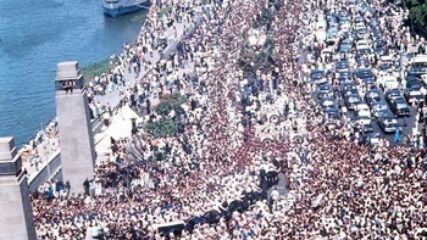
September 28, 1970 Egyptian President Gamal Abdel Nasser dies of a heart attack at age 52 after experiencing symptoms while returning from ceremonies marking the end of an Arab summit, in which he brokered a…
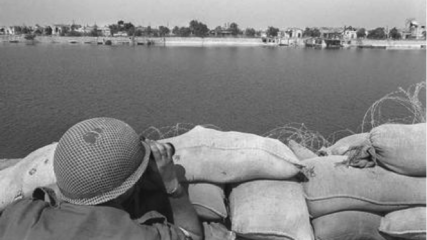
Israel, Jordan and Egypt finally signed a ceasefire, ending the 1967-1970 War of Attrition.

May 22, 1970 Palestinian terrorists ambush an Egged school bus on the road from Moshav Avivim, near the Lebanese border, to Dovev and kill eight children and four adults. The ambush takes place at a…
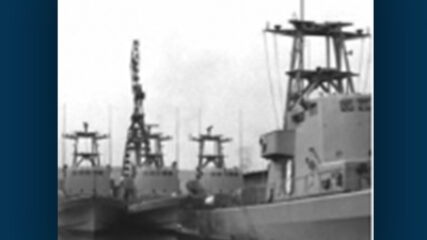
Israeli teams are sent to France to work in local shipyards. The Mossad established a “front” shipping company to buy the remaining boats and then return them to Israel.
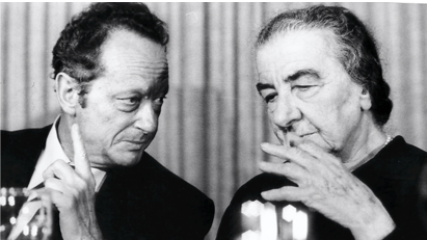
Deputy Prime Minister Yigal Allon, a former IDF general, reveals in remarks to the Foreign Press Association of Israel his plan for “home rule” for Arabs living in the West Bank.

August 23, 1969 Egyptian President Gamal Abdel Nasser, who has adopted devout Muslim observance since losing the June 1967 war to Israel, responds to the arson attack on Al-Aqsa mosque two days earlier by calling…
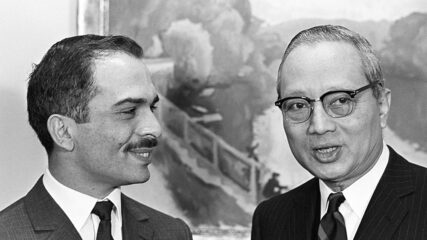
July 7, 1969 U.N. Secretary-General U Thant warns the Security Council that he is considering withdrawing the 96 U.N. observers from the Suez Canal zone because a state of “open warfare” exists there. He reports…
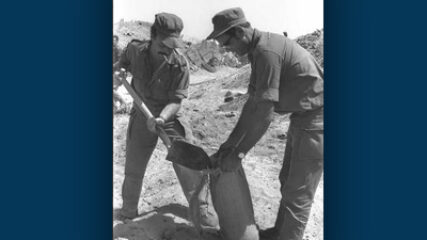
Egyptian forces launch a major offensive at Israeli positions on the eastern banks of the Suez Canal, starting the War of Attrition that lasts until August 1970.
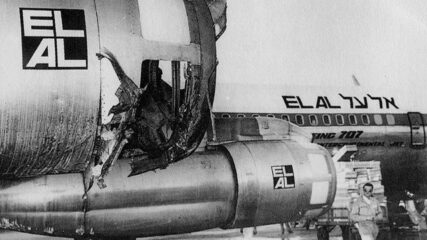
December 26, 1968 El Al Flight 253 from Tel Aviv to New York is about to take off after a layover in Athens when two men posing as passengers approach the Boeing 707. One draws…
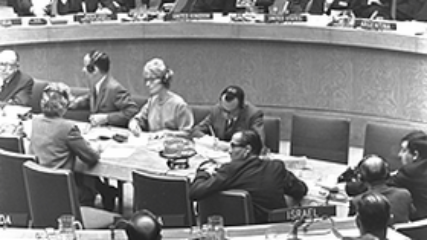
In the wake of the June 1967 Six Day War, the United Nations Security Council adopts Resolution 242, a document which has served as a framework for all major Arab/Israel negotiations since.

The Israeli destroyer INS Eilat is sunk in the Mediterranean in international waters off Port Said by Soviet-made missiles launched by Egyptian missile boats.
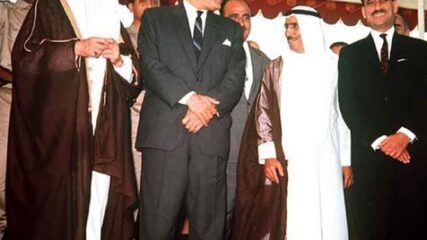
September 1, 1967 The Arab League summit in Khartoum, Sudan, ends with the signing of the Khartoum Resolutions, best known for the conclusions that become known as the “Three Nos”: no recognition of Israel, no…
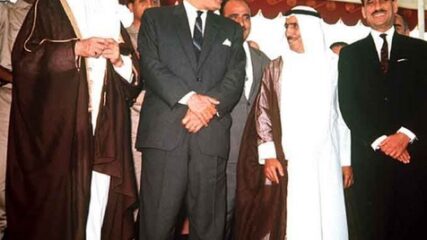
The Fourth Arab League Summit convenes in Khartoum, Sudan. Participants agree that all measures should be taken to regain lands controlled by Israel after the War, and that the oil-rich countries would finance an increased Arab military presence in the region.
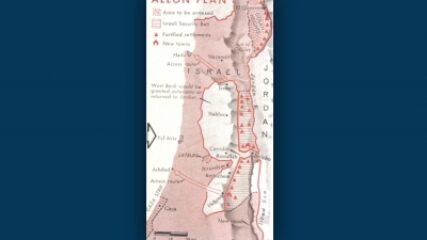
Penned by Yigal Allon, the Plan is a strategic proposal for Israel’s retention of the Jordan Valley in the West Bank. It includes a series of Jewish settlements and military installations to act as buffers against potential Arab attacks from the east.
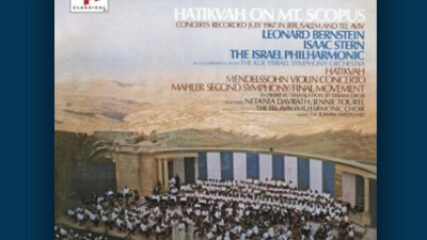
A packed audience fills the amphitheater on Mount Scopus to celebrate the end of the June 1967 War and to mark the cultural unification of Jerusalem.
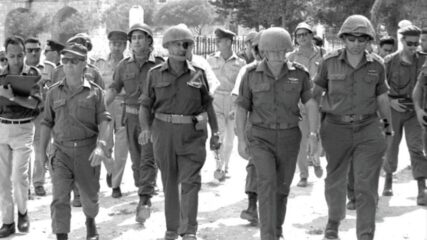
June 28, 1967 Israel publishes the Jerusalem Declaration, announcing the reunification of the ancient holy city under Israeli sovereignty after the Six-Day War, which ended June 10. The announcement comes 23 days after Jordan chose…
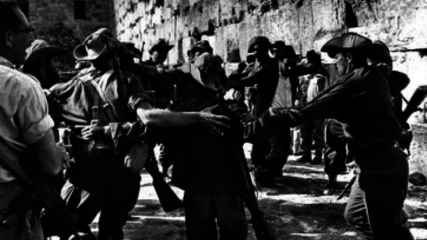
Following Israel’s victory and subsequent acquisition of Jordan’s territory along the West Bank of the Jordan River in the war, the Israeli government annexes roughly 70 square kilometers of land next to West Jerusalem.
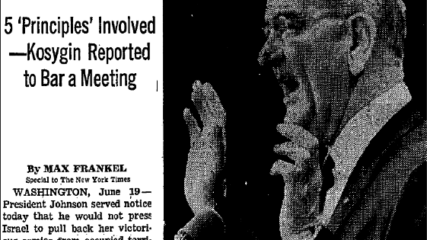
Speaking to a group of 800 educators at the State Department, President Lyndon B. Johnson delivers an important foreign policy address, which includes five principles for peace in the Middle East.

Israeli forces, under the command of Major General David Elazar, launch an offensive into the Syrian-controlled Golan Heights.
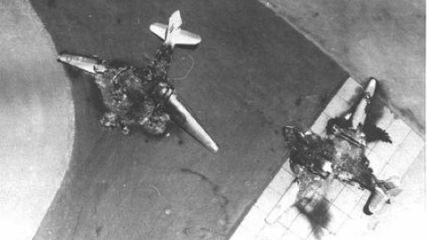
Egypt was on alert, expecting an Israeli attack to come at dawn. However, the Israelis delay and do not strike until 8:15 AM, when most Egyptian pilots are at breakfast and Egyptian commanders caught in traffic.
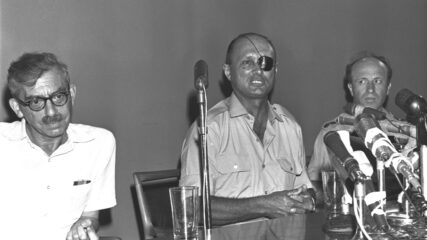
As tensions with Egypt escalate, Prime Minister Levi Eshkol appoints Moshe Dayan as Defense Minister, leading to Israel’s first national unity government.
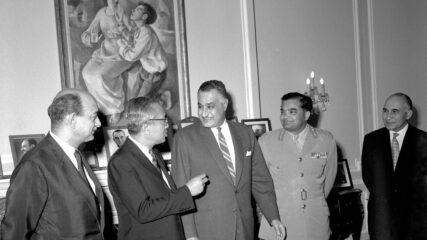
May 16, 1967 Egyptian President Gamal Abdel Nasser requests that the United Nations withdraw its peacekeeping troops from the Sinai, clearing an obstacle to war between Israel and its Arab neighbors. The Six-Day War begins…

The Voice of Israel Song Festival was created in 1960 as part of Israel’s Independence Day celebration and as an opportunity to showcase Israel’s emerging culture.
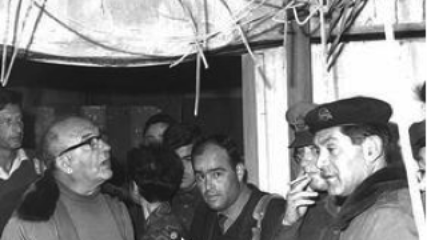
After unarmored Israeli tractors were fired upon in the demilitarized zone, Israeli forces began to return fire. The event soon escalated.
Dive in, or choose a pathway: Topics, Types, Eras and/or Languages. Explore robust content. Come back often for more.